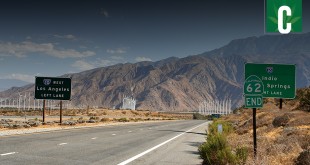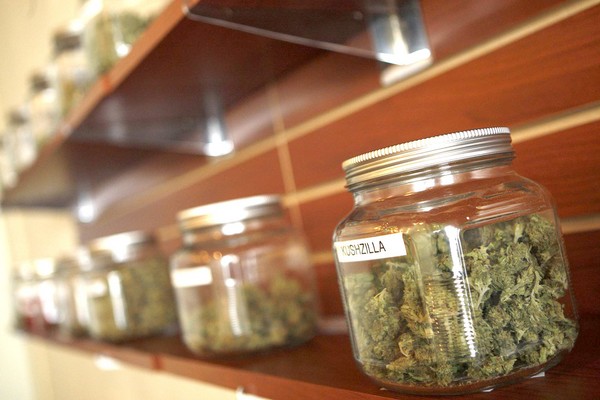Two years ago, when voters in Palm Springs decided whether they wanted a sales tax increase, the city poured money and resources into a campaign to sell the proposal. That push succeeded.
But now that voters face a new proposal, one that would raise revenue from sales at medical marijuana dispensaries, and the city is staying mum.
Taxing Marijuana Sales
The proposed tax would generate $15 for every $100 of marijuana product sold. Yet city officials said they don’t consider this as important an issue as the 2011 tax levy, which went to development projects. For one thing, they said, there isn’t as much money at stake.
“Our hope is to spend as minimal as possible,” said City Manager David Ready. “There was a significant amount of revenue potential for Measure J. . . . This is a fraction of what Measure J was.”
Ready can spend up to $25,000 before he must obtain approval the city council. But he has yet to spend nearly that much. He said the city won’t spend like it did on the 2011 proposal, known as Measure J. “[That] would almost be like getting a fly with a shotgun.”
Ready didn’t say whether discomfort with marijuana played any role in decisions not to put out as much information about this proposal. Palm Springs is one of a short list of cities in California that still allow pot dispensaries. It’s the only one to do so in Riverside County, and there are only three left standing in town.
Getting The Proposal Passed
In 2011, city officials spent more than $52,000 on an educational campaign tied to the sales proposal, which raised the sales tax by one percentage point. California municipalities are allowed to lobby for ballot initiatives as long as they don’t tell residents which way they should vote.
In addition to the money spent on the informational campaign, the city spent more than $16,000 on a tax study and almost $76,000 on a development consultant. The city has apparently spent nothing – or next to nothing – on the cannabis proposal.
Officials haven’t even created a Web site, as they did when the tax question was on the ballot.
Ready said that the tax “certainly doesn’t rise to the level of the same educational campaign. Measure J affected every taxpayer. This measure obviously affects a much smaller universe.”
 California Marijuana Market Breaking "Marijuana News" from CA
California Marijuana Market Breaking "Marijuana News" from CA




